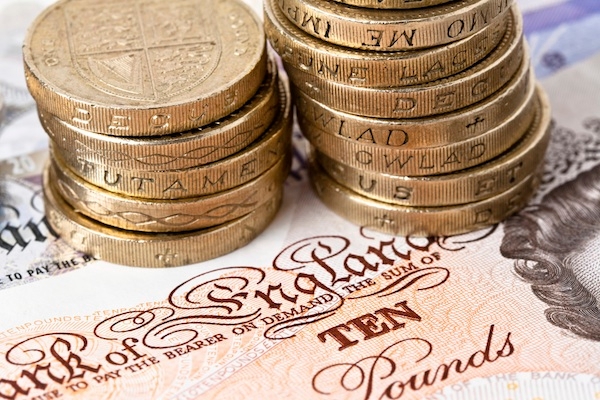All eyes are on the latest inflation data, released this morning. According to the Office for National Statistics (ONS), inflation has reached its highest rate for two-and-a-half years.
As measured by the Consumer Prices Index, annual inflation hit 1.8 per cent last month, up from 1.6 per cent in December. This is largely due to the rising cost of fuel, and is the fourth consecutive month that the rate has risen. Statistics from the RAC show that fuel prices peaked at a two-year high in early February.
Dominic Baliszewski, director of consumer strategy for Momentum UK, said: ‘A lot of people will be feeling the pinch, with disposable income taking a big hit. This fall in spending power is evident from the drop we’ve seen in high street sales, with figures from some sources indicating that retailers have experienced their worst January performance in four years. Along with rising inflation and rock-bottom savings rates, consumers are also facing low wage growth. It’s an unusual situation when the average pensioner has a greater income than the average working person, but this is the reality.’
Meanwhile, the ONS UK House Price Index shows that, across the country as a whole, prices rose by 7.2 per cent last year, compared to 6.9 per cent in 2015. According to the BBC, the Shetland Isles saw the biggest house price increase, recording a rise of 26 per cent.
The average price of a house or flat reached £220,000 in the year to the end of December, the ONS said.Gig economy
The Guardian reports on new research into the gig economy by the Trades Union Congress (TUC). The paper said: ‘The rapid rise in insecure work in the UK is costing the Government almost £4 billion a year in lost tax income and benefit payouts. The UK’s growing legions of low-paid, self-employed workers and those on zero-hours contracts earn significantly less than regular employees and therefore pay less tax and national insurance. Their relatively low earnings also make them more likely to need to rely on in-work benefits such as tax credits and housing benefit.’
SaversThisisMoney reports on more bad news for savers. Following today’s inflation figures, for the vast majority of savers, the value of their deposits is now being eroded at a rate of more than 1 per cent a year. Investment managers True Potential say today’s CPI inflation rate could cost cash savers billions of pounds by devaluing their wealth.
However, in other savings news, data from Moneyfacts.co.uk reveals that savings rate rises have finally overtaken reductions during the month of January, after 15 consecutive months of cuts (since September 2015).
In January, Moneyfacts recorded 67 savings rate rises and 53 reductions. However, some of the reduced deals fell by as much as 0.6 per cent, which is still more than the current Bank of England Base Rate of 0.25 per cent.
In other positive news, new deals launched since the start of the year outweigh withdrawals, as there have been 49 new savings accounts versus 31 withdrawals.
Rolls-Royce The BBC reports on some lamentable results from Rolls-Royce. The combination of a bribery settlement and the fall in the pound have propelled the engineering giant to a record loss before tax of £4.6 billion for 2016. However, once one-off costs have been stripped out, the company’s underlying profit was better than many experts had predicted. HousingThisisMoney reports on statistics from lettings agent Countrywide which says that the proportion of landlords buying properties in cash has reached record levels. Last month, 61 per cent of Britain’s buy-to-let purchases were made mortgage-free.
In other housing news, the Council of Mortgage Lenders said this morning that homeowner house purchase lending totalled £11.6 billion in December, up 5 per cent on November and 3 per cent on December 2015. This came to 63,600 loans. First-time buyers borrowed £5.1 billion for homeowner house purchase, up 9 per cent on November and 13 oer cent on December 2015. This totalled 32,000 loans.
Finally… As it’s Valentine’s Day, couples will be scouring the shelves for bottles of fizz. But The Guardian reports that champagne drinkers in Britain face higher prices in the next year as the impact of the Brexit vote on the pound takes its toll. The paper said that a ‘triple whammy’ of Brexit, inflation and possible rising alcohol duty is forecast to push up the prices of champagne and prosecco in the UK by £1 and 59p per bottle respectively, the Wine and Spirit Trade Association has warned.





Comments